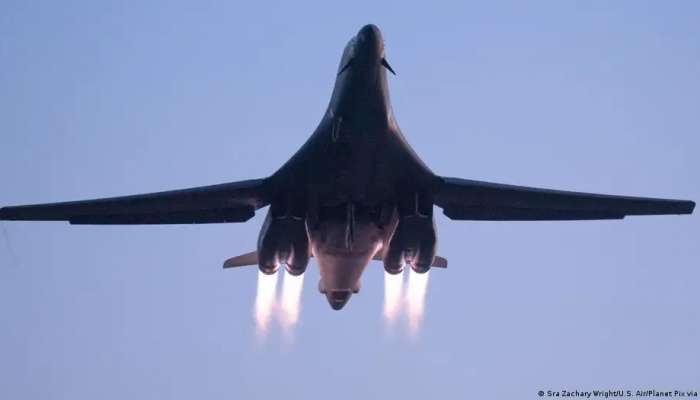
Geneva: The world's nine nuclear-armed states spent altogether $91.4 billion (€85.4 billion) on their arsenals in 2023, a $10.7 billion increase on the year before, according to a report by the Geneva-based International Campaign to Abolish Nuclear Weapons (ICAN).
Global spending on nuclear weapons was equivalent to $2,898 per second.
The United States was responsible for the vast majority — 80% — of the increase in spending. Washington invested $51.5 billion in modernizing its nuclear arsenal, more than all other nuclear-armed countries put together.
Spending in 2023 by the nuclear-armed states jumped more than 33% from the $68.2 billion spent in 2018, when ICAN first began collecting this data, it said, with an estimated total of $387 billion going toward nuclear weapons in that time, the report showed.
A separate study by the Stockholm International Peace Research Institute (SIPRI) said that the number of operational nuclear warheads had increased even though the total number of such warheads around the world had declined somewhat.
"We have not seen nuclear weapons playing such a prominent role in international relations since the Cold War," said Wilfred Wan, director of SIPRI's weapons of mass destruction program.
In a recent sign of the growing prominence of the nuclear threat, Russia and its ally Belarus last month launched a second stage of drills meant to train their troops in tactical nuclear weapons as Russia tries to deter the West from supporting Ukraine amid its invasion of the country.
ICAN, which won the Nobel Peace Prize in 2017, said in its report that the profits associated with the nuclear arms industry — $7.9 billion in 2023 — had incentivized manufacturers to spend at least $6.3 million last year on influencing government policy and public opinion on nuclear weapons.
According to Alicia Sanders-Zakre, policy and research coordinator with ICAN, China was the second-biggest spender after the US, with a nuclear arms budget of $11.8 billion, followed by Russia on $8.3 billion.
The other nuclear-armed states — Britain, France, India, Israel, Pakistan and North Korea — have also all continued to modernise their arsenals.
"There has been a notable upward trend in the amount of money devoted to developing these most inhumane and destructive of weapons over the past five years," Sanders-Zakre said.
According to the SIPRI report, Russia and the United States together possess almost 90% of all nuclear weapons.
SIPRI noted that while the total estimated number of nuclear warheads in the world actually fell slightly to 12,121 at the start of this year, from 12,512 a year earlier, some 9,585 were in stockpiles for potential use — nine more than a year earlier.
The Swedish think tank estimated that 2,100 nuclear warheads — almost all belonging to the US or Russia — were kept in a state of "high operational alert" on ballistic missiles.
"Regrettably, we continue to see year-on-year increases in the number of operational nuclear warheads," said Dan Smith, SIPRI's director.
He added that this "extremely concerning" trend will likely accelerate in the coming years.
In comments to the AFP news agency, the head of ICAN, Melissa Parke, said, "I think it is fair to say there is a nuclear arms race underway."
Parke slammed "the billions of dollars being squandered on nuclear weapons" as "a profound and unacceptable misallocation of public funds."
She pointed out that the money spent on nuclear arms programmes was more than what the World Food Programme estimates is needed to end world hunger.
Sanders-Zakre said, "All this money is not improving global security, in fact it's threatening people wherever they live."
She called on countries to sign up to ICAN's Treaty on the Prohibition of Nuclear Weapons, which took effect in 2021.
"Instead of investing in Armageddon, the nine nuclear-armed states should follow the example of almost half the world's countries and join the treaty ... and make a real contribution to global security," she said.